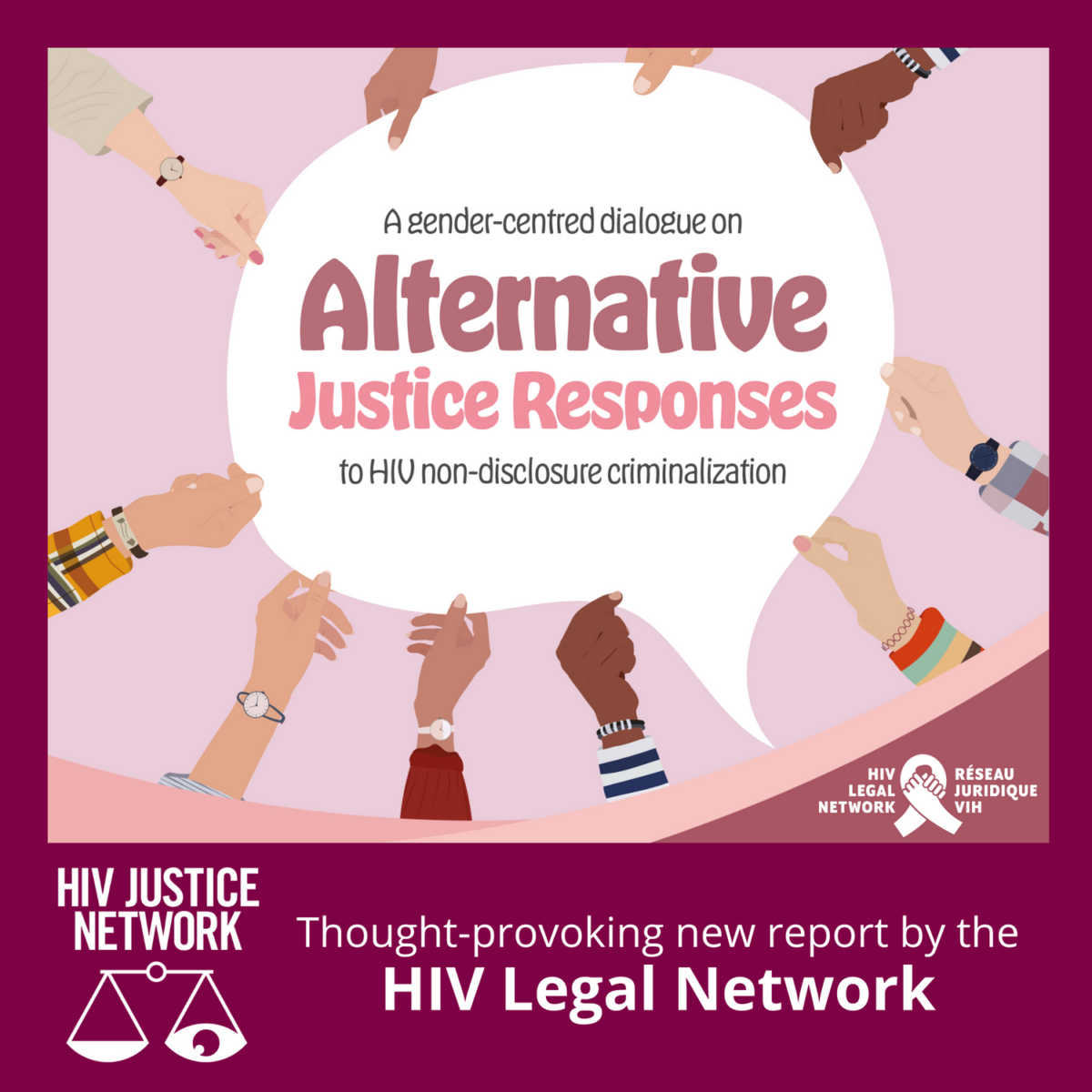
This week, our close partners in the HIV JUSTICE WORLDWIDE coalition, the Canadian-based HIV Legal Network, published a thought-provoking new report, A gender-centred dialogue on alternative justice responses to HIV non-disclosure criminalization in English and French.
Whilst the report focuses on the specifics of the Canadian situation, it provides for provocative and stimulating reading that should inspire all of us working to end HIV criminalisation and other punitive approaches to HIV prevention.
Funded by Women and Gender Equality (WAGE) Canada, the brief synthesises and builds upon the roundtable that was co-hosted by the HIV Legal Network with the Women & HIV/AIDS Initiative (WHAI) and Communities, Alliances & Networks (CAAN) in June 2022.
The objective of the roundtable was to gather cross-sector perspectives about whether an alternative justice approach is warranted or appropriate in situations of HIV non-disclosure.
Given the unique legal situation in Canada, where HIV non-disclosure is prosecuted as sexual assault, and given the interaction between HIV criminalisation, disclosure, and gender – including the risks of gender-based violence and gendered power dynamics – the discussions were grounded in gender-centred considerations.
Since most alternative justice responses focus on repairing the harm caused by an individual and include holding people accountable for their actions, the roundtable and the report raised questions around applying the notions of “harms” or “wrongdoing” to HIV non-disclosure.
Is HIV non-disclosure a harm in and of itself? Or does it depend on the circumstances and characteristics of the involved parties?
Given its harmful impacts, there was a consensus among participants that the criminal law is not the appropriate instrument to respond to HIV non-disclosure.
To respond to the needs of people who experience non-disclosure and account for the realities of women and gender-diverse people including those living with HIV, roundtable participants discussed potential alternative responses, including restorative and transformative justice models.
The roundtable and the report also focused on community-based alternatives to the criminal legal system, notably how to foster collaboration between the HIV sector, the sexual assault and gender-based violence sector, and alternative justice organisations.
Three main themes on alternative community-based interventions emerged from the roundtable:
1. Creating enabling environments for positive and healthy sexuality and sexual relationships.
2. Delivering dynamic, non-shame-based, responses to situations of non-disclosure that depend on the needs of the parties and communities involved.
3. Recognising that an alternative justice approach to HIV non-disclosure must be one that transforms the conditions that lead to increased HIV vulnerability and experiences of violence and criminalisation, all of which must be grounded in an anti-racist and anti-colonial approach.
The report concludes that the current state of HIV criminalisation is untenable and fails to promote “justice” for anyone involved. It ends with a number of recommendations from the HIV Legal Network aimed at the federal government, public health departments, and HIV-impacted communities that primarily focus on creating a supportive, enabling environment for HIV prevention, treatment, care and support.
You can find A gender-centred dialogue on alternative justice responses to HIV non-disclosure criminalization in the English and French versions of the Resource Library of the HIV Justice Academy, as well as on the HIV Legal Network‘s website.